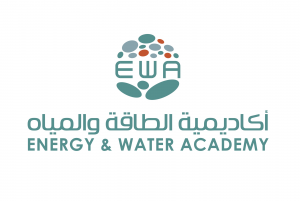The Energy and Water Academy (EWA) is a community of professional vocational people who seek the highest academic and training standards. Therefore, the academy takes the highest care for academic and training integrity and transparency. The academic integrity and transparency are considered the basis of intellectual development for the trainees and the academy’s standards for the academic integrity prohibit any unacceptable conduct.
Definition of violation of the academic integrity
To help the trainees acquire the full benefit of the educational and training chances presented by the Energy and Water Academy, the trainee should know the violations of the academic integrity and the unacceptable behaviour. Because of the severe penalties for the violation of the academic integrity and transparency, each trainee is responsible to know, understand and define all violations of the academic integrity and transparency. The trainee is also responsible to know and understand any training programs related to the policies and procedures of academic integrity.
The following matters are considered guiding principles to acquaint with the violation of the academic integrity. The members of the teaching group and/or the training programs will provide extra guiding principles, or define more violations and/or the unacceptable conduct with full package of the teaching methods used in the Energy and Water Academy, also, the academy encourages the trainees who have questions or inquiries about the violations of the academic integrity and transparency to contact the instructor and the members of the teaching group and other employees of the academy.
The violation of the academic integrity is any action, procedure or attempt that may lead to creating academically unfair advantage for the trainee or for any other member of the academic society. It can include but are not limited to the following:
- Cheating:it is defined as a premeditated attempt to get or to use illegal subjects or information (for example, papers of cheating, using another trainee’s account) or receiving or the attempt to get permitted help from another person (for example looking in the test paper of another trainee or asking another person during the exam or speaking during the test without permission) or using the mobile phone during exams and tests, the laboratory, the practical exercises or any other tasks.
- Forgery:it is defined as the unlicensed deliberate forgery to invent or copy data or the project of practical training or research or the results of the practical test.
- Literary theft:It is the use of the intellectual subjects produced by another person without acknowledging with the source or to submit words or thoughts of another person claiming that it is for him- production. In addition to the above, the following also are considered literary theft.
- Buying, robbing, or borrowing of a research paper or homework (including copying of a complete paper or essay or great parts of such type or from the web) or to lease a person to write the paper of research and / or copying of big parts of a text of a source without the two clues of quotation or the appropriate citing.
- The trainees must use the American documentation system APA which includes the documentation in the text and putting clues of texts for the copied words and the name of author and the date of the text and the page number. The half-copied thoughts in the language of the trainee shall be documented with the name of the author and the source date; otherwise it will be considered theft.
- Conspiracy:It is the provision of assistance to another person to cheat in an academic work on purpose; and this includes the permission for other person to make copies of your work.
- The full photocopying:It is the process of full photocopying of literary subject without documenting the source.
- The illegal writing:It is the request from another party to write on behalf of the trainee and to produce the work claiming that it is from the writing of the trainee.
- Using the work of another trainee without his knowledge.
- Violating copywrite.
- Any other illegal act such as a lie in claiming the reasons for failure to deliver the homework or research on time or to submit a homework or paper for which the trainee has acquired degrees but is related to a different subject.
Each trainee should know the limits of the acceptable assistance, and accordingly he should consider that any assistance in the academic work is an illegal work unless this is mentioned in the academic plan. The academic cadre is responsible to explain any other matters that may be considered a violation to the academic integrity.
Background Colour
Font Face
Font Size
Text Colour
